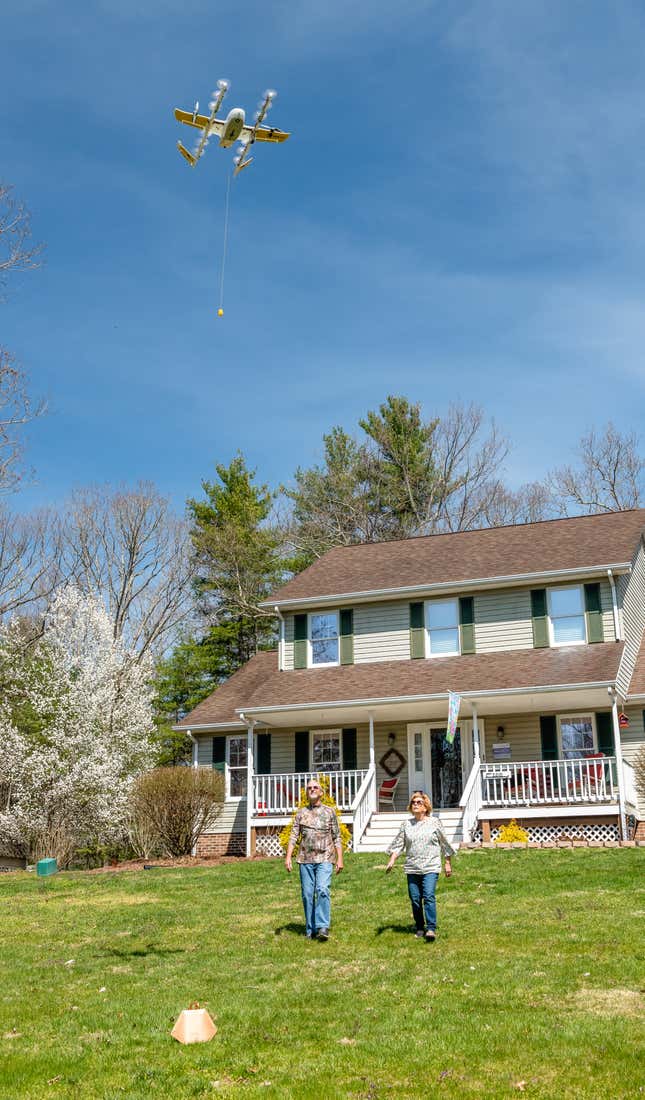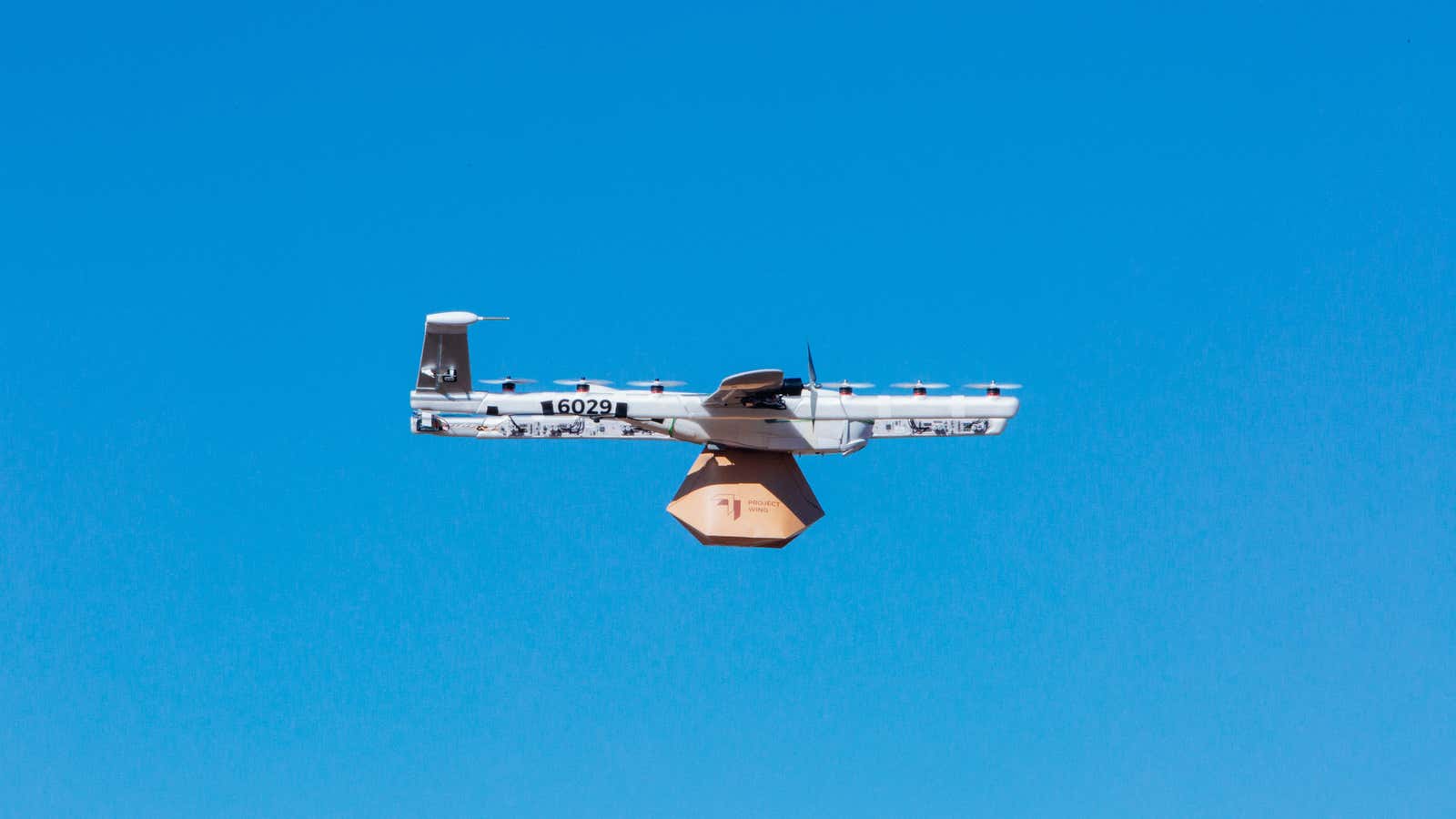Alphabet subsidiary Wing says it’s become the first company certified by regulators to deliver goods by drones in the US.
Wing’s Federal Aviation Administration (FAA) approval allows it to offer an autonomous, flying version of delivery services like Postmates, with the company working with local restaurants and businesses to bring their products to customers. Wing has been testing its drones in two areas in Virginia—Blacksburg, home of Virginia Tech, which it’s been working with for years, and Christiansburg—and will continue to do so. The company aims to provide a wider test delivery service in those places later this year.

Wing’s drones have completed more than 70,000 test flights and 3,000 deliveries, mainly through tests it’s been carrying out in Australia.
The announcement shows the FAA’s shifting priorities under Donald Trump’s transportation secretary, Elaine Chao. Under her predecessor, Anthony Foxx, the FAA moved slowly to study how the US could integrate drones, especially autonomous ones, into American airspace. Under this administration, the FAA launched the Integration Pilot Program (IPP) last May, as a way for companies and regional officials to come up with ideas and working test cases. The intent has been to inform how the FAA can more quickly integrate drones into air traffic. Wing was part of the program in Virginia, and it seems that its work has impressed the FAA enough to provide it with this new mandate before anyone else.
Wing, like Waymo and Loon, was spun out of X, Alphabet’s “moonshot” lab, and is one of Alphabet’s bets to secure the long-term future of the company beyond Google search and advertising revenue. Like its sister companies, it’s competing in new fields, and relying on a combination of new autonomous technologies, partnerships with third parties, and government approval. It’s now a race with rivals to see which one will be the first to start offering services to consumers outside of a beta test.
